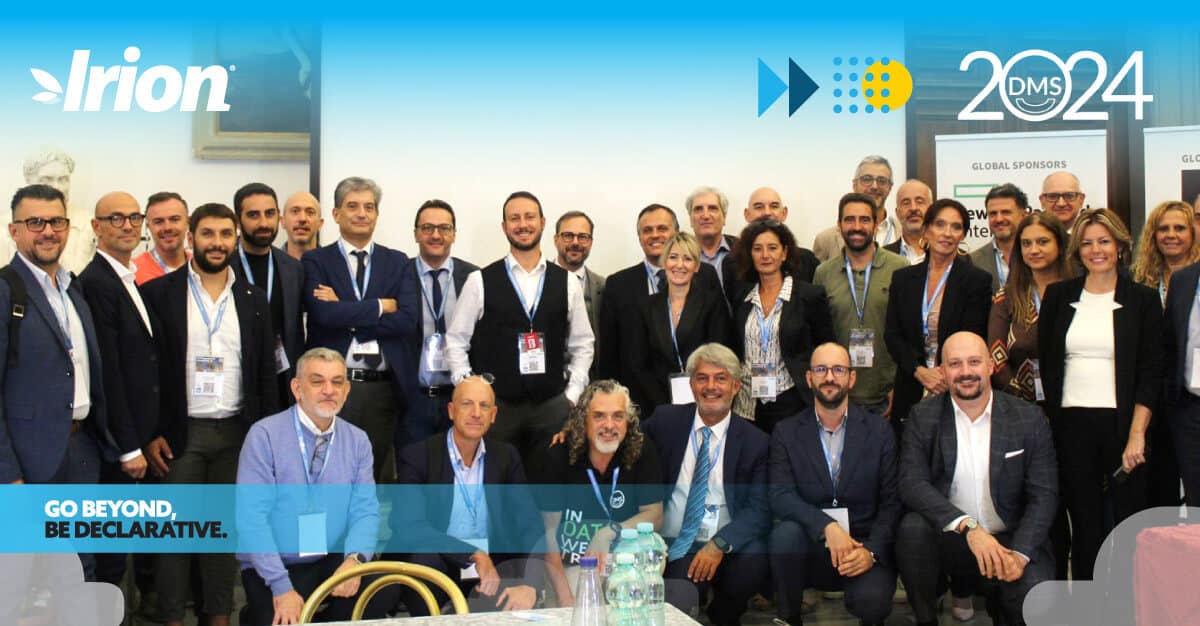Enabling the benefits and governance of Artificial Intelligence, using metadata correctly to support integration between highly diverse data sources, equipping the company with a “Rosetta Stone” (a common language, possibly through a Business Glossary) to facilitate communication among the various stakeholders involved in managing information assets, and investing in observability and continuity to quickly address any anomalies.
Complexity, accountability, collaboration: these were the key themes at the two recent editions of the 2024 Data Management Summit held in Rome and Pavia. The event, promoted by Irion, brought together the data leader community to discuss the most pressing business and compliance challenges, such as DORA, ESG and AI. The discussions highlighted the need for motivated data owners and data stewards—people who take responsibility, promote a data-driven culture, and maintain high standards in the upkeep of data and metadata to prevent them from quickly becoming obsolete.
The importance of proactively addressing the classification of Artificial Intelligence systems—whether already in use or under development within an organization—was also emphasized, even before the AI Act comes into force. The goal is to map these systems based on their risk levels and enable effective AI Governance. Reference was also made to the ISO 42001 standard as a management framework for AI, with its set of technical controls, defined roles and responsibilities, data cleansing requirements, and the validation and verification of algorithms and their impact. As for the Public Administration—discussed during the Rome edition—the debate highlighted “the need to focus on ontologies as an essential approach for delivering more efficient services to citizens in exchange for their data,” as noted by Mario Vellella, Principal Domain Advisor at Irion.
Data quality and AI: the current situation
At the DMS, the topic of external data quality was also discussed—a subject recently addressed by BancoBPM with Irion at Polimi. On this front, the emphasis was placed not only on receiving the data in a consistent format, but also on ensuring homogeneity in calculations (for example, the same type of approximation), especially since, once incorporated, this data effectively becomes part of the organization’s internal information assets.
In many large organizations—especially outside the finance sector, where certain topics must be addressed for compliance—data quality control is typically scattered across numerous departments, offices, and information systems, often very different from one another. The national research on Data Quality and AI, conducted by the Politecnico di Milano with Irion, revealed that in Italy, 3 out of 4 companies are not ready, and poor data quality also results in financial losses. “Often, companies have controls that are not recorded or mapped in any system. That’s why it has become urgent to simplify Data Quality management and Data Governance oversight with a single, flexible architecture. We need convergence between these two domains to achieve a centralized view,” emphasized Enrico Galimberti, Presales Manager at Irion, during the roundtable on Data Management and Artificial Intelligence. Irion’s approach is the “daisy” model: a hub & spoke architecture with a central governance node that houses the outcomes of data controls, and peripheral “petals,” which are the labs where the controls are actually performed.
Creating controls with AI: –60% in time required
As for Artificial Intelligence, Irion presented its vision of an open architecture, offering capabilities to use any machine learning model (for example, through the Python engines natively integrated into Irion EDM), allowing users to choose which generative AI engine to adopt. Flexibility in support of continuous improvement.
“AI within Irion also helps save up to 60% of the time required to create controls, because it reduces the manual and operational workload. And in financial institutions, where documenting processes is mandatory (just think of regulatory inspections: I’ve seen your process, now explain your controls), generative AI is fantastic—because in just a few seconds, you can describe thousands of them,” added Galimberti.
The metadata challenge: a fundamental map
The working groups highlighted long-standing issues in Data Management, such as the need to identify golden sources and to keep data and metadata in systems up to date—something that is difficult to achieve entirely automatically. Often, most of the effort is concentrated in the initial setup phase, after which there is a risk of obsolescence, especially for business metadata.
“Having a good metadata map is like having a map of the company. When a change process occurs, I can know exactly where it has an impact and intervene more effectively,” highlighted Egle Romagnolli, Head of Marketing at Irion, during the DMS in Pavia. “Metadata is the essential key to managing the data itself.”






